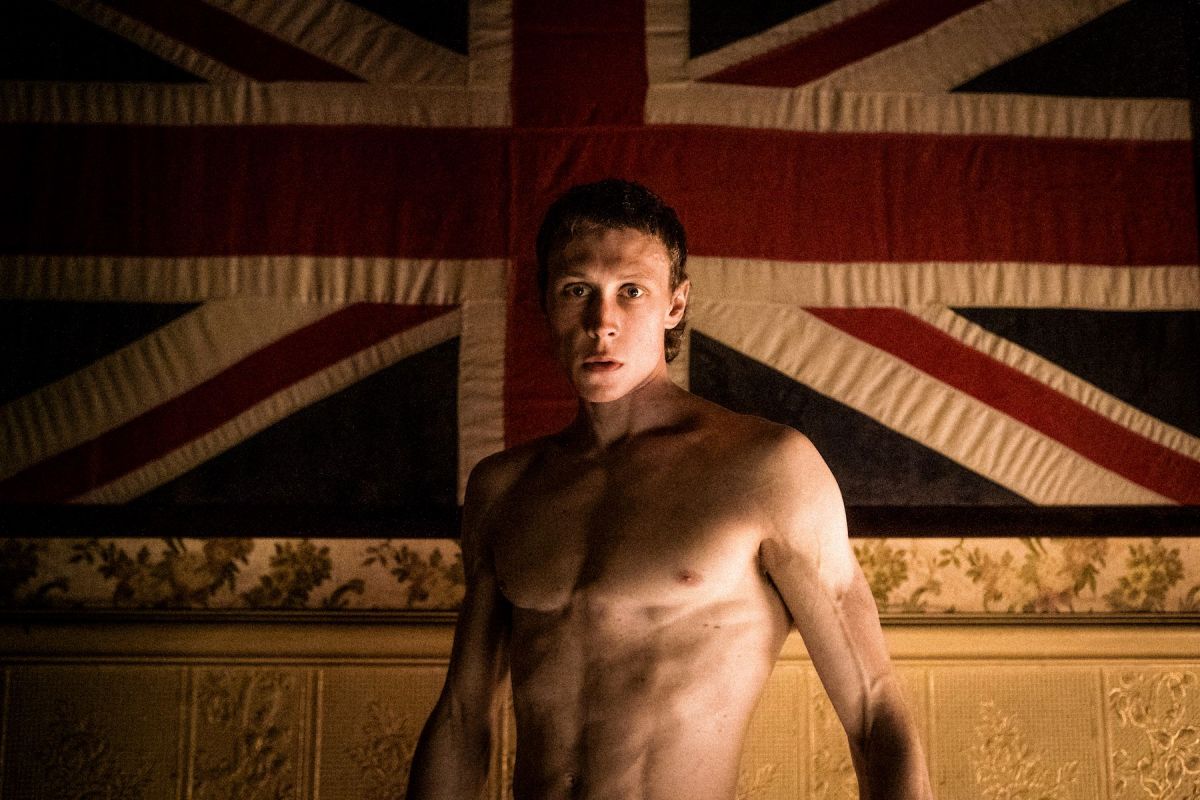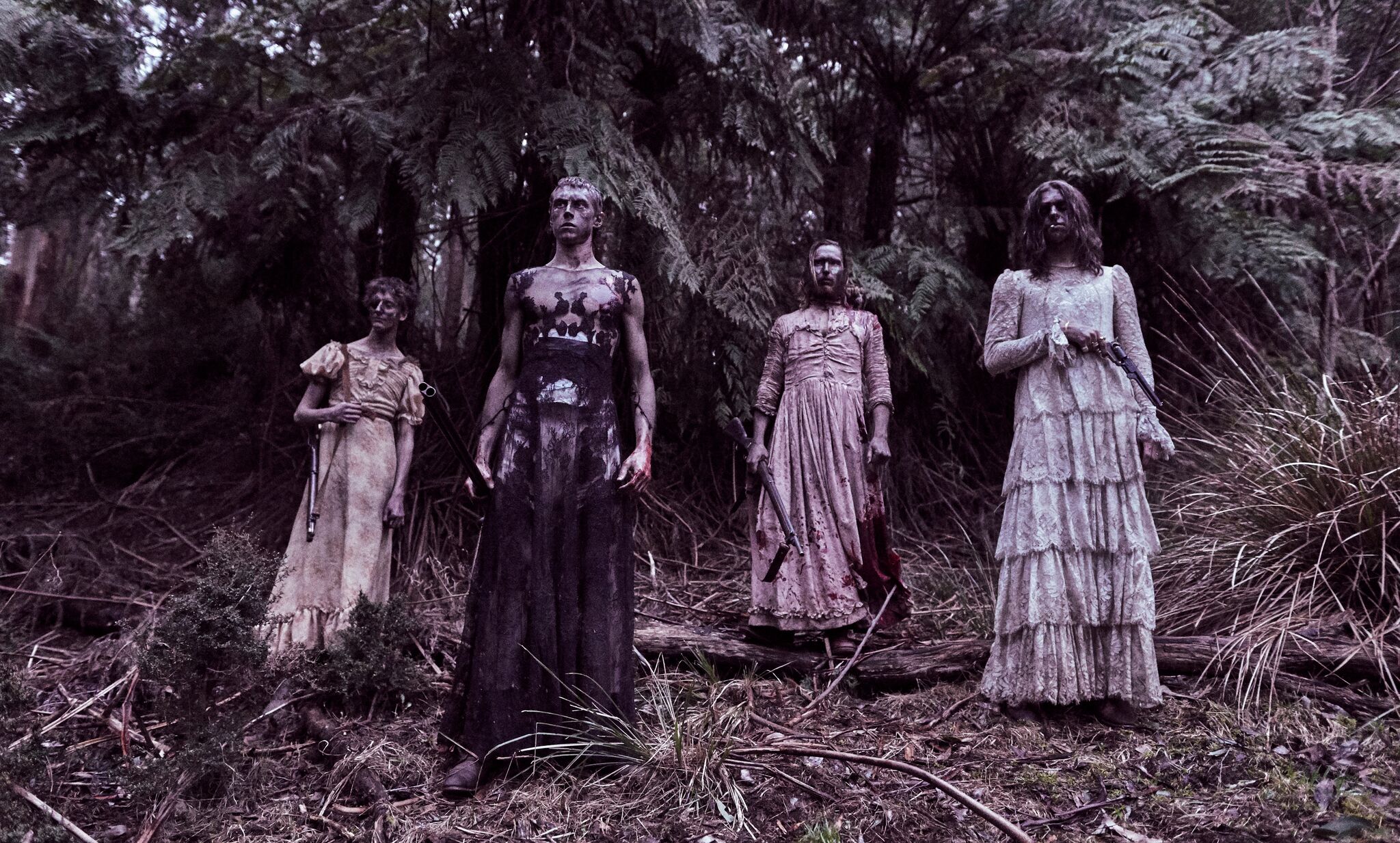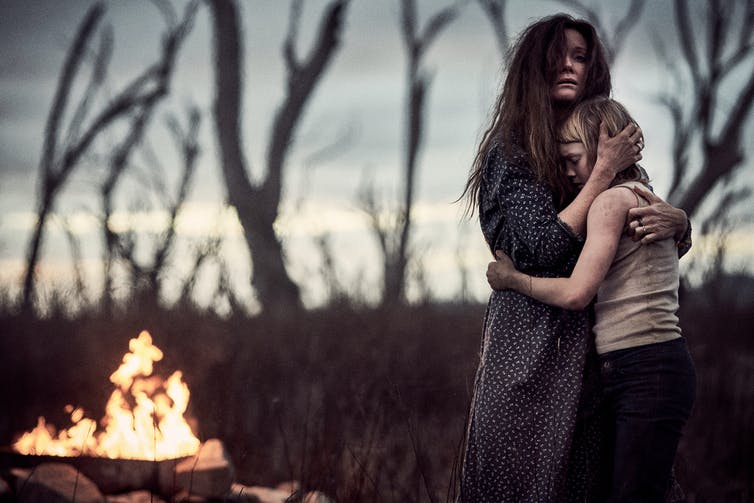Hollywood paycheque assignments like Assassin’s Creed aside, Justin Kerzel has become one of Australia’s most interesting and distinctive film voices. His creative aesthetic is frequently the pursuit of some form of family amid the filth, profanity and grime or poverty and underclass, and this retelling of the story of Ned Kelly (the fifth by my count) is the most clear-cut and brutal expression of it.
It’s also the first time we’ve seen this much (however stylised and imagined – I’m not suggesting any of it’s true to life) about the boyhood that made the bushranger into what he became. At least a third of the film deals with Ned as a kid of about 12 (Orlando Schwerdt) and his formative years.
His rough talking Irish mother Ellen (Essie Davis) ‘services’ the local constable (Charlie Hunnam) as a form of payment for protection, because the Kelly family husband and father is so ineffectual at taking care of her, Ned and his brothers and sisters. The strange compulsion he has of wearing dresses and running amok in the countryside around their rural shack is never really explained, but when he’s killed early on nobody really misses him.
It’s left to Ellen to raise her family which she does with hardscrabble tenderness, loving her son like a jungle cat but, not really shielding them from the brutal hellhole the rest of the world is.
Ned finds a father figure in Harry Power (Russell Crowe), a fun loving local rogue who falls in with the family and treats everyone lovingly and like his own as he sings funny songs around the table and sees off the constabulary taking advantage of Ned’s mother. When he offers to take Ned up north to teach him a trade, the impressionable boy is shocked to discover that intended trade is to murder and rob travellers – Harry is a bushranger and as he reveals, Ned’s mother paid him to take Ned away and teach him how to be one too, effectively selling her son off.

Ned returns years later in the form of George McKay a terrifying figure. He’s skinny but rough hewn and sinewy, constantly scowling, uneducated and wearing a mullet. He’s exactly the type you’d see a century later driving a Monaro around the suburbs harassing people, robbing petrol stations and getting drunk in abandoned factories and parks, and McKay plays him to the brutal, anti-social hilt.
He’s now a career criminal with no chance of being anything else (and knows it), so he decides to embrace it fully, all while knowing the destruction it’ll eventually visit on himself and his family. Even while he stumblingly falls for a popular lady of the night who works in the popular brothel in town and has a daughter by her, Ned knows he’s little more than a low class Irish thug.
He recruits his brother and the best friend he’s made while on his travels after breaking with Harry and forms the historic gang, cutting a swathe of fear and terror throughout country Victoria until the iconic last stand at the Glenrowan Inn wearing his iron armour.
That’s the plot, but what Kurzel does with his camera and cinematography (along with DP Ari Wegner) elevates it immeasurably. It’s a gritty western, hard reality blending with swooning fantasy, a Tarantino-esque fever dream of raw imagery and brutal power that blends seamlessly with some dreamlike images of stark beauty. Just one is the landscape the Kelly family homestead is found in, endless flats of black sand with the stripped stumps or dead eucalyptus trees everywhere, likes bones piercing dead skin.
In some sort of nod to his biological father’s legacy, Ned has everyone wear frocks as they rob terrified travellers and battle it out with the police because as he says, there’s nothing scarier than crazy.

There’s also a kind of timeless quality that almost seems like the film wants to reach across the decades and exist today. If it’s not McKay’s face and costuming that makes him almost seem like a hard drinking footy hooligan from the early 80s, it’s the Inn where the Kelly gang have taken a clutch of hostages, looking less like a dusty, characteristic country pub and more like a dingy suburban scout hall with fluorescent lighting and bare, chipped walls.
But for me there’s a scene that’s pivotal to Ned’s story, maybe more so than the bloodshed, robbery and descent into a life of crime and which might even betray an unwittingly conservative outlook. While still a kid, Ned saves a local boy from drowning by pulling him out of a waterhole. The boy’s mother (Claudia Karvan) comes to visit the Kelly home, telling Ellen she wants to pay for Ned to go to school to repay what he’s done.
But the smarmy, self-satisfied Ellen scorns the woman, even showing off the fine necklace Ned had stolen from her house and given his mother to taunt her. The woman genuinely wanted to do something that would have saved Ned from a life of poverty (and eventually the gallows), but Ellen was merely offended at the idea of some upper class Australian/Brit deigning to offer Irish trash charity, taking the chance to gloat and offend the woman and blowing the only chance Ned would ever have.

Is Kurzel and writer Shaun Grant making a comment on how the lower classes deserve their fate because they don’t want to help themselves or take the opportunities they’re given, like generations of conservative politicians have complained?
Either way, this film is a sledgehammer, taking a mythology and spinning up a story of crushing violence and oppression Kelly’s real story has obviously inspired in Grant.
Subscribe to FIB’s Weekly Alchemy Report for your weekly dose of music, fashion and pop culture news!







